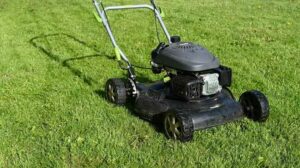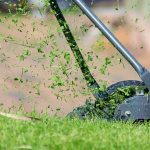Remote technology is revolutionizing lawn care by significantly reducing the physical labor involved. From robotic mowers to smart irrigation systems, these innovations offer convenience and efficiency, making yard maintenance easier than ever. Find out how embracing these tools can save time and effort while keeping your lawn pristine.
Understanding the Role of Remote Technology in Lawn Care
Benefits of Automation and Robotics
Automation and robotics reduce the physical strain of lawn care. Robotic mowers, for example, autonomously maintain grass at optimal lengths, eliminating the need for manual mowing.
Smart irrigation systems ensure efficient water usage. They adjust watering schedules based on weather data, maintaining soil moisture without manual intervention. These tools not only save time but also improve lawn health through consistent care.
Remote technology allows users to control lawn care devices via smartphones. This convenience ensures that lawns receive proper attention without continuous physical effort from the user.
Key Technologies Driving Change
Several key technologies drive these advancements in lawn care. Robotic lawn mowers independently maintain lawns, managing obstacles and returning to charging stations when needed.
Smart irrigation controllers use weather data and sensors to optimize watering schedules. This technology prevents overwatering and conserves resources.
IoT (Internet of Things) integration enhances remote monitoring and control. Lawn care devices connect to apps, allowing users to manage multiple aspects of lawn maintenance from their smartphones.
These technologies together reduce the physical demands of lawn care, making it more efficient and manageable for homeowners.
Examining the Tools and Devices
RC Lawn Mowers
RC (Remote-Controlled) lawn mowers, like those from Mowrator, automate grass cutting, significantly reducing physical labor. These devices are controlled via a remote, allowing users to navigate lawns manually or set them to operate autonomously, avoiding obstacles and adapting to different terrains. Many models offer programmable schedules, enabling users to set mowing times via smartphone apps. This ensures consistent lawn maintenance without manual intervention.
Automated Watering Systems
Automated watering systems optimize water usage by responding to weather conditions. Smart irrigation controllers adjust watering schedules based on real-time weather data, ensuring lawns receive adequate hydration. Users can control these systems remotely, reducing the need for manual watering and enhancing water conservation.
Smart Gardening Sensors
Smart gardening sensors monitor soil conditions, providing data on moisture levels, temperature, and sunlight. These sensors, connected to gardening apps, offer insights to optimize plant care. Devices help users make informed decisions, minimizing physical work by delivering precise recommendations for watering and fertilization schedules.
Implementation Strategies for Homeowners
Choosing the Right Technology
Homeowners need to select technology that fits their lawn care requirements and budget. RC lawn mowers offer convenience by autonomously maintaining grass, controlled via smartphone apps. Consider smart irrigation controllers, which adjust watering schedules based on real-time weather data. Deploy smart gardening sensors to monitor soil conditions, providing precise recommendations for watering and fertilization.
Setting Up and Maintaining Your Systems
Setting up remote lawn care technology involves following manufacturer instructions closely. For RC lawn mowers, this means properly installing boundary wires and configuring the mower’s settings via its app. Regularly check for software updates to ensure optimal performance. When installing smart irrigation systems, ensure that the controllers are connected to Wi-Fi and properly integrated with existing irrigation infrastructure. Routine maintenance, such as cleaning sensors and checking connections, keeps the systems functioning efficiently.
Safety and Security Concerns
Safety and security are paramount when implementing remote lawn care technologies. Ensure that RC lawn mowers have obstacle detection and safety features to prevent accidents. Use secure Wi-Fi networks and strong passwords to protect smart irrigation controllers and gardening sensors from unauthorized access. Regularly update software and firmware to mitigate cybersecurity risks. Educate family members on the safe use of these devices to prevent mishandling.
Future Trends in Lawn Care Technology
Innovations on the Horizon
Upcoming technologies are set to transform lawn care even further. Autonomous mowers with AI capabilities will navigate complex landscapes while avoiding obstacles more efficiently. Enhanced battery life in these mowers will let them cover larger areas without frequent recharges.
Precision irrigation systems are evolving to include soil moisture sensors and advanced weather forecasting, reducing water waste and promoting healthier lawns. Some companies are working on such technologies that connect directly to smart home systems for seamless integration.
Drones equipped with multispectral cameras will offer real-time monitoring of lawn health. These drones can spot issues such as pests or nutrient deficiencies, providing actionable insights immediately. This tech is particularly promising for large estates and golf courses where manual inspections are labor-intensive.
Potential Impact on Consumer Habits
These advancements are likely to shift consumer habits significantly. With the ease of maintaining lawns through remote technology, more homeowners might invest in automated solutions. Automated systems eliminate the need for physical exertion, attracting those who have limited time for yard work.
Subscription models for lawn care technology maintenance might become popular, enabling homeowners to keep their systems updated without hassle. This model would ensure the latest features and optimal performance without the need for manual upgrades.
Eco-conscious consumers will likely appreciate the sustainability benefits of these technologies. Reduced water consumption from precision irrigation and lower emissions from battery-operated mowers align with environmentally friendly practices. More consumers might prioritize technology that promises both convenience and sustainability.
Conclusion
Remote technology is revolutionizing lawn care by offering innovative solutions that ease physical labor and improve efficiency. From autonomous mowers to precision irrigation systems and drones, these advancements promise to reshape how homeowners maintain their lawns. The shift towards automated solutions and subscription models not only simplifies lawn care but also promotes sustainability through reduced water use and lower emissions. As these technologies become more accessible, it’s likely that more homeowners will support these eco-friendly and convenient options for maintaining their outdoor spaces.









awesome